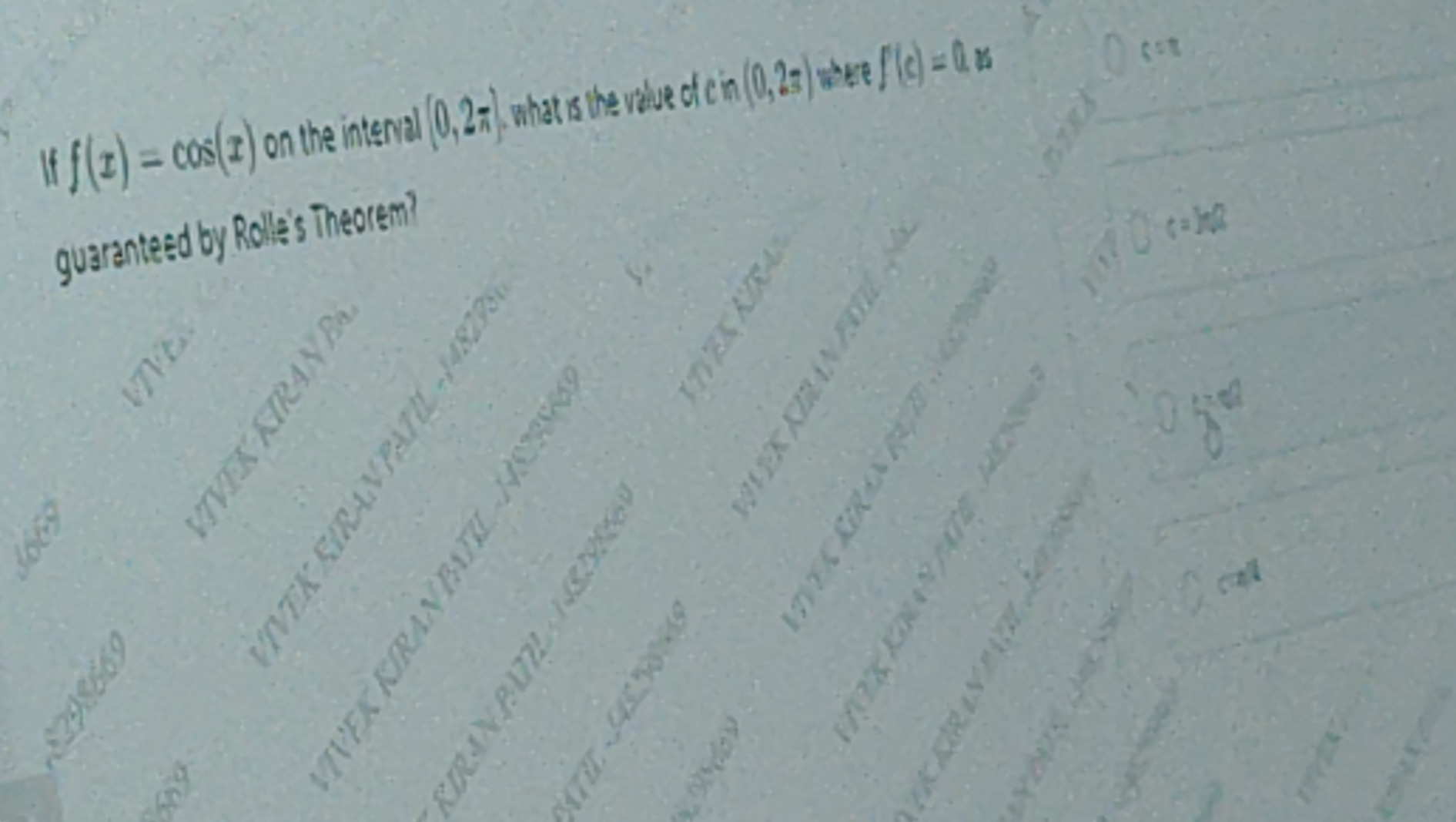Question
Question: If f(x) = cos(x) on the interval (0,2$\pi$), what is the value of c in (0,2$\pi$) where f'(c) = 0, a...
If f(x) = cos(x) on the interval (0,2π), what is the value of c in (0,2π) where f'(c) = 0, as guaranteed by Rolle's Theorem?

c = π
c = 3π/2
c = 5π
c = π/4
The value of c is π.
Solution
To find the value of c as guaranteed by Rolle's Theorem, we first need to ensure that the conditions of Rolle's Theorem are met for the given function and interval.
Rolle's Theorem Conditions:
For a function f(x) on a closed interval [a,b]:
- f(x) must be continuous on [a,b].
- f(x) must be differentiable on (a,b).
- f(a)=f(b).
If these three conditions are satisfied, then there exists at least one value c in the open interval (a,b) such that f′(c)=0.
Applying Rolle's Theorem to f(x)=cos(x) on (0,2π):
The problem states the interval as (0,2π). For Rolle's Theorem, we consider the closed interval [0,2π].
-
Continuity: The function f(x)=cos(x) is continuous for all real numbers, so it is continuous on the closed interval [0,2π]. (Condition 1 satisfied)
-
Differentiability: The function f(x)=cos(x) is differentiable for all real numbers. Its derivative is f′(x)=−sin(x), which exists for all x. Thus, f(x) is differentiable on the open interval (0,2π). (Condition 2 satisfied)
-
Equality of function values at endpoints: f(0)=cos(0)=1 f(2π)=cos(2π)=1 Since f(0)=f(2π), this condition is also satisfied.
Finding c where f′(c)=0:
Since all three conditions of Rolle's Theorem are met, there must exist at least one value c∈(0,2π) such that f′(c)=0.
First, find the derivative of f(x): f′(x)=dxd(cos(x))=−sin(x)
Now, set f′(c)=0: −sin(c)=0 sin(c)=0
We need to find the values of c in the interval (0,2π) for which sin(c)=0. The general solution for sin(c)=0 is c=nπ, where n is an integer.
Let's check values of n to find c within the interval (0,2π):
- If n=0, c=0π=0. This value is not in the open interval (0,2π).
- If n=1, c=1π=π. This value is in the open interval (0,2π).
- If n=2, c=2π. This value is not in the open interval (0,2π).
- For any other integer values of n, c will be outside the interval (0,2π).
Therefore, the only value of c in (0,2π) for which f′(c)=0 is c=π.
